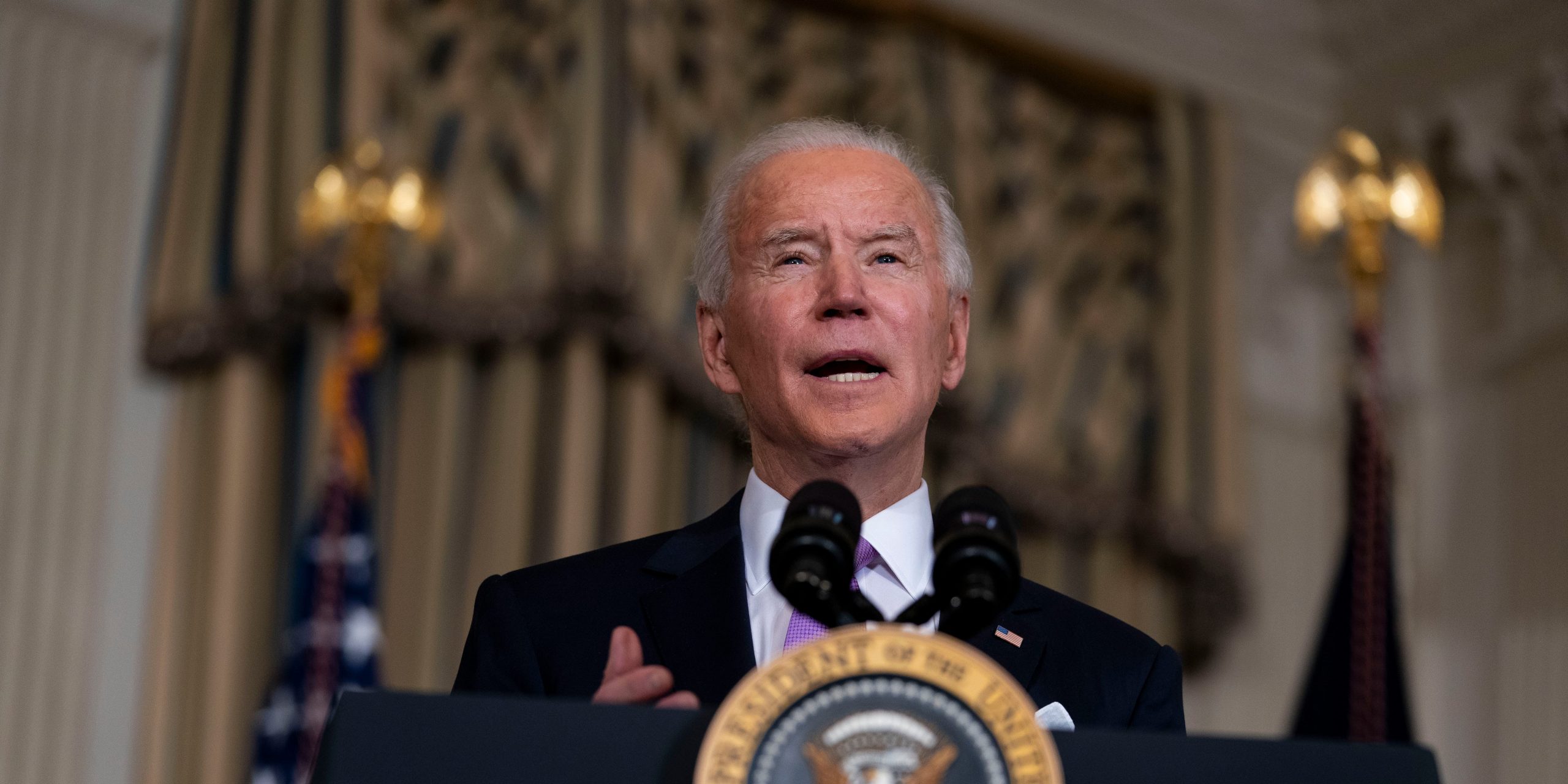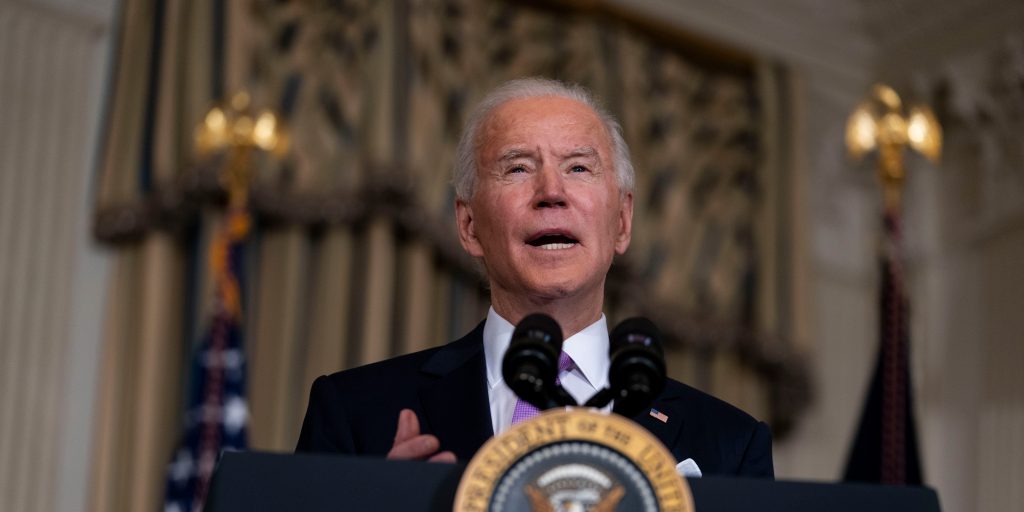
Doug Mills-Pool/Getty Images
- The US economy has been hit with crippling supply shortages, and Biden has a plan.
- The efforts aim to address immediate supply-chain problems and bolster domestic production.
- The US will also look to shift its international supply-chain priorities from competitors to allies.
- See more stories on Insider's business page.
The US economic recovery is well on its way, but it hasn't been without its hurdles. Among the direst are supply-chain bottlenecks fueling shortages across a range of products. Inadequate supply of lumber has crippled the housing market and led prices to skyrocket. A lack of semiconductor chips is slowing activity in the automotive and tech sectors. And the medicine industry remains hobbled by a shortage of active pharmaceutical ingredients.
The Biden administration is on the case.
The White House just rolled out a sweeping plan to heal pandemic-slammed supply chains and address shortages of critical products as the country reopens.
Following a 100-day review of supply-chain strains, President Joe Biden announced he will form a task force to address shortages of semiconductors, pharmaceuticals, critical minerals, and batteries. The group will be led by the Secretaries of Agriculture, Commerce, and Transportation, and convene stakeholders to "diagnose problems and surface solutions."
Agencies including the Department of Health and Human Services, the Department of Energy, and the Department of Interior will work with the administration to ease the supply-demand imbalances, according to a Tuesday release. Specifically, the Commerce Department will lead an effort to track supply and demand disruptions as they emerge and share information between government and private entities to curb risks.
The administration's strategy also seeks to improve supply chain efficiencies for the long term. The Department of Labor will announce later in June more than $100 million in grants for state-led apprenticeship programs, and the Department of Energy will promote the manufacturing of new innovations in the US.
Looking abroad, the US will shift its supply-chain priorities away from competitors and toward global allies, as well as crack down on unfair international trade practices, according to the release. The so-called strike force led by the US Trade Representative will propose enforcement actions against unfair trade practices committed by other countries. The force will also seek out opportunities to strengthen trade relationships and supply-chain resilience with allies, the White House said.
Boosting production at home
Much of the plan's long-term goals hinge on boosting domestic production, particularly for items in short supply today.
Biden recommended Congress spend at least $50 billion on researching, developing, and manufacturing critical semiconductors within the US. The chips are used in everything from vehicles to kitchen appliances, and a global shortage has held back supply just as reopening boosted demand. The spending is a key element of a bill slated for a Senate vote that aims to boost competitiveness against China.
The Department of Energy's Loan Programs Office will immediately leverage roughly $17 billion in loan authority to support the domestic production of vehicle batteries. The funds will be used for re-equipping, expanding, and establishing battery production facilities in the US.
The Department of Health and Human Services will make an initial investment of about $60 million to develop technology for increasing production of active pharmaceutical ingredients. Improved API production in the US helps reduce the country's reliance on global suppliers for in-demand medicines, especially in times of increased public-health need, the administration said.

